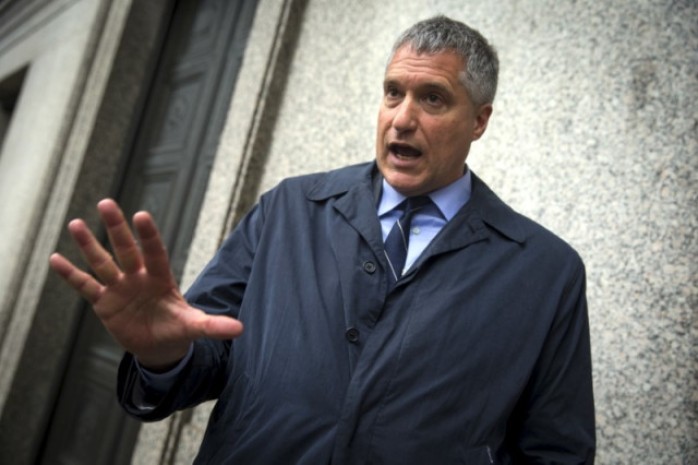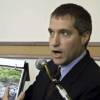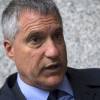Juicio RICO (2011-Presente)
Disbarment 'Too Extreme' for Donziger, Referee Finds
Chevron has lambasted the referee's report, with its attorney at Gibson Dunn arguing the referee had "ignored" the findings of a federal judge.
Law 27/02/2020

In a twist, a special referee in the disciplinary case against Steven Donziger said the suspended attorney should be allowed to practice law again, despite a federal judge’s opinion that Donziger had scammed Chevron in a corrupt Ecuadorian court.
John Horan of Fox Horan & Camerini, a referee tasked to determine an appropriate punishment for Donziger, said that disbarment would be “too extreme,” in a Monday report to legal disciplinary authorities.
Horan recommended to the Appellate Division, First Department, to end Donziger’s suspension. The court has yet to rule on whether to accept Horan’s recommendation and could decide to impose a harsher sanction.
In response to the report, Chevron lambasted Horan’s report. Chevron’s attorney at Gibson, Dunn & Crutcher, partner Randy Mastro, said Tuesday that Horan had “ignored” the findings of a federal judge.
Donziger has been litigating against Chevron for years over its alleged liability for environmental damage in the Amazon. His clients won an $8.6 billion judgment in Ecuador in 2011, Horan’s report said. Chevron has said the case was tainted by fraud and bribery, however. U.S. District Judge Lewis Kaplan of the Southern District of New York agreed in 2015, eventually ordering Donziger to pay Chevron more than $4 million.
“The sanction of disbarment, while clearly and well-argued by the [Attorney Grievance Committee], impresses me as too extreme,” Horan wrote. “Nor do I think there are precedents which control. There appears to be no case like this. While [Donziger] is often his own worst enemy and has made numerous misjudgments due to self-confidence that may border on arrogance, and perhaps too much zeal for his cause, his field of practice is not the usual one.”
The judge described Donziger’s work in the criminal defense field in the 1990s and how he began pursuing Chevron in 1993, serving as an attorney, coordinator and public face for a group of Ecuadorians suing the company. The case was brought on contingency, the judge noted, and Donziger’s fees and costs have been funded by several parties over the years.
The referee also commented on Chevron’s pursuit of Donziger, calling it “extravagant, and … unnecessary and punitive.” He said the company’s strategy didn’t affect his findings, however.
Horan’s report walked a fine line between crediting Donziger’s denial of wrongdoing and applying collateral estoppel to the federal courts’ decisions. He seemed at times to raise an eyebrow to Kaplan’s decision and the Second Circuit’s affirmation, noting that the judge spoke from the bench in defense of Chevron’s role in the U.S. economy.
Horan’s recommendation came after several days of testimony from Donziger and a host of lawyers and activists who support him, including the progressive legal rock star Deepak Gupta and the actual rock star Roger Waters of the band Pink Floyd.
Donziger’s lawyers are optimistic, not just about his chances in the First Department disciplinary case, but about the possible impact of Horan’s findings on other proceedings.
“My judgment is that [the court] will affirm the referee,” said Martin Garbus, special counsel at Offit Kurman and one of Donziger’s lawyers. “This is the first written opinion that validates Donziger, and I think it’s going to affect the criminal proceeding. … This basically saves Steve‘s life.”
Donziger has been under house arrest for several months on criminal contempt charges related to his alleged failure to comply with evidentiary rulings in the case before Kaplan. When the U.S. Attorney’s Office for the Southern District of New York declined to pursue Donziger, Kaplan last year appointed lawyers from Seward & Kissel as special prosecutors to pursue criminal contempt charges against him. He is represented by Andrew Frisch in that case.
Horan’s decision wasn’t entirely in Donziger’s favor. It said Donziger testified that he worked with the plaintiffs firm Kohn, Swift & Graf to finance the contingency case against Chevron for nearly two decades and turned to “investors” in 2009 after Kohn pulled out. The referee found fault with Donziger’s accounting of those funds.
Donziger’s testimony about investor funding was “general, somewhat vague, and on the whole not satisfactory as evidence of compliance with the Rules of Professional Responsibility,” Horan wrote.
In a statement, Donziger, who was also represented by Richard Friedman of Friedman Rubin, said Horan’s hands were tied by the federal court’s findings but said it “took courage” to come to the conclusions he did.
“The hearing officer was not allowed to address what I believe is the falsity of Judge Kaplan’s findings,” he said in an email. “But the hearing officer was allowed to speak the truth about my character and my value to the public interest.”
Chevron, in a 961-word statement, said Horan’s recommendation “appears to be contrary” to the First Department’s rulings on the binding nature of the federal courts’ findings.
Mastro, Chevron’s attorney at Gibson Dunn, said he believed the First Department would do the right thing.
“While Chevron was not a party to these state disciplinary proceedings, the referee’s non-binding recommendation to the court has essentially ignored findings of fact — after a several-week trial before one of the nation’s most respected federal judges — that Donziger committed racketeering, mail and wire fraud, extortion, bribery and multiple other offenses,” he wrote in an email. “And that judgment and findings against Donziger were then unanimously affirmed on appeal. If those damning findings against an attorney don’t warrant sanctions, what ever would?”
A lawyer for the Attorney Grievance Committee declined to comment.
Fuente OriginalNotas relacionadas
-
 Steven Donziger’s Pathetic Attempt To Avoid Disbarment In DC
Steven Donziger’s Pathetic Attempt To Avoid Disbarment In DC -
 La jugada de Donziger quedó incompleta
La jugada de Donziger quedó incompleta -
 Steven Donziger condenado por desacato criminal
Steven Donziger condenado por desacato criminal -
 The Donziger Saga Continues
The Donziger Saga Continues -
 Prosecute Steven Donziger’s ‘Egregious Fraud’
Prosecute Steven Donziger’s ‘Egregious Fraud’ -
 Otro financista clave del fraudulento litigio contra Chevron en Ecuador retira su apoyo
Otro financista clave del fraudulento litigio contra Chevron en Ecuador retira su apoyo
